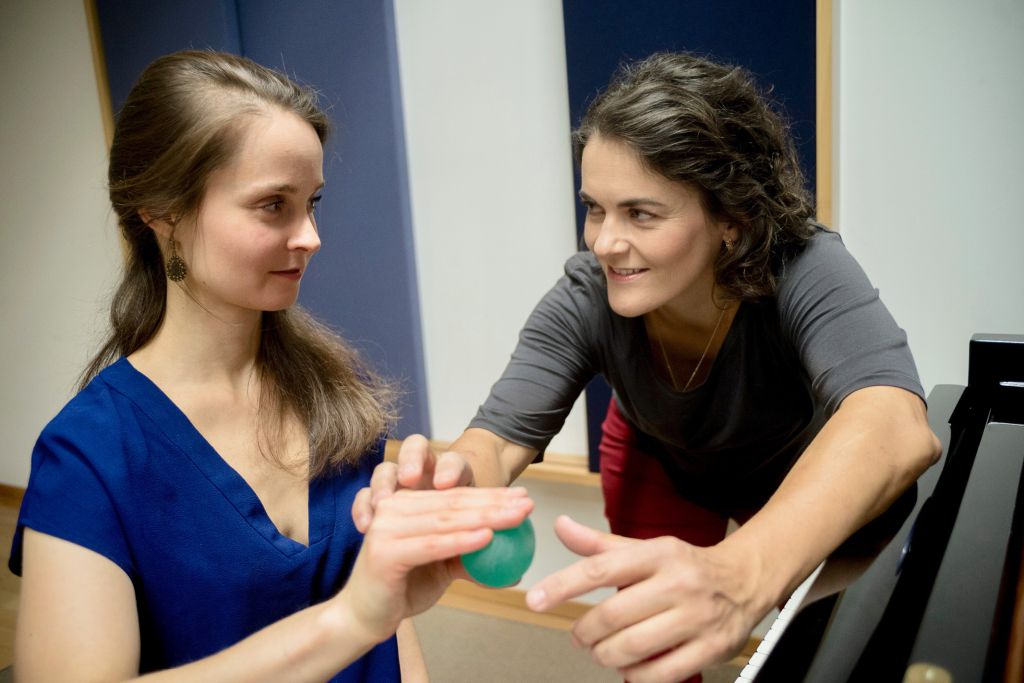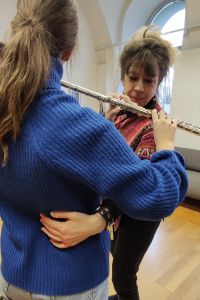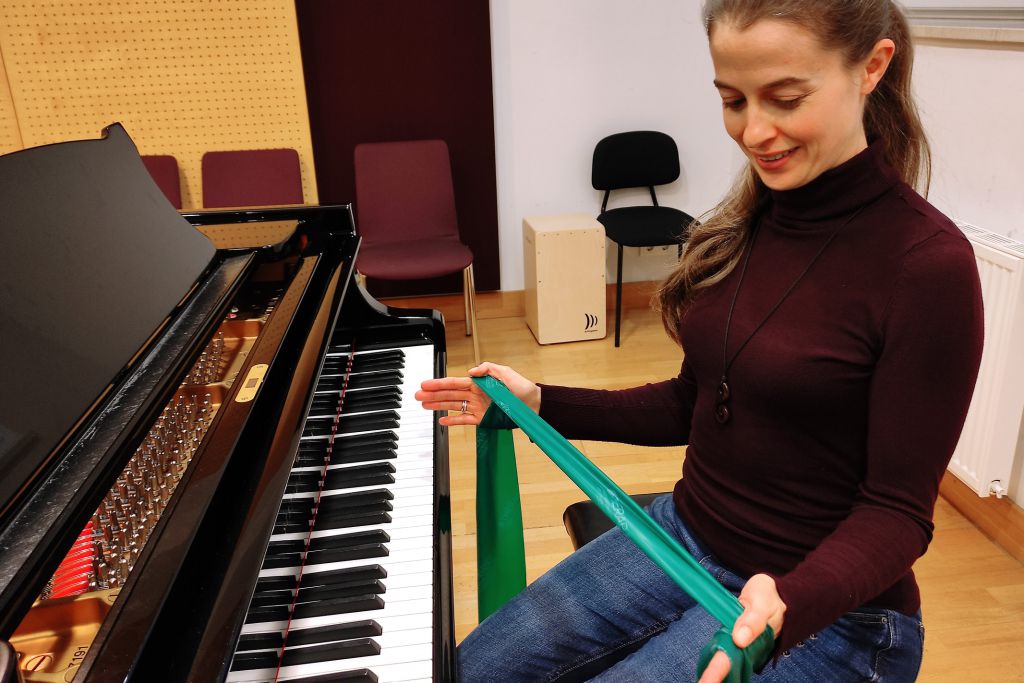Expanding the Teaching Skills of mdw Faculty
Since the mdw’s Music Physiology certificate programme was established seven years ago, a total of 66 graduates have included twelve members of the mdw teaching faculty. This programme’s objective is to create an awareness around healthy music-making among music teachers—whether they work at the University or in music schools. After all, such awareness makes it possible not only to prevent playing-related problems from arising in the first place but also to improve instrumentalists’ playing overall. It is important to emphasise, though, that this does not turn musicians and music educators into therapists who can make diagnoses, provide health advice, or treat ailments. Instead, this certificate programme headed by Alexandra Türk-Espitalier focuses on primary prevention—and its participants learn to employ physical and mental exercises as part of instrumental lessons with healthy students. To attempt anything else would be unserious. A look into just what impact the programme has had on participants’ everyday teaching, on how their perceptions of the learners in their charge have changed, and on how learners themselves react to the new lesson content is provided in the following by teachers who’ve taken advantage of this opportunity to expand their knowledge and skills.

“Thanks to the diversity of the subjects included in this programme, I was able to acquire lots of new skills and enrich existing ones—which has enabled me to operate more competently and also be more relaxed in my teaching,” says Veronika Morscher in summary of her experiences. Morscher, a singer, has since herself joined the Department of Music Physiology—where she teaches the subjects Concentration Practice, Introduction to Breath and Movement Work, Performance Coaching, and Yoga. Morscher had already been a certified yoga teacher before entering the programme, but she finished it with an even better understanding of the interface between music, body, and mind. Recognising and understanding how the body, emotions, and music interrelate is central to this programme. Graduates can bring this knowledge to bear in their own practicing, concertising, and teaching.

The immediate applicability of the included content in one’s instrumental teaching is something that trumpeter Jakob Gollien values about the programme. But from his experiences teaching at the Franz Schubert Department of Wind and Percussion Instruments in Music Education, he also knows that students’ reactions to music physiology-related input can vary widely depending on their openness to and willingness to try out new and different approaches. “Why should I do this exercise if nothing hurts to begin with…?” “Why do I need to warm up my body before practicing?” These typical questions are ones that his departmental colleague Thomas Lachtner likewise knows well. Thanks to the certificate programme, both Gollien and Lachtner now have well-founded answers and arguments with which to convey clearly to their students why this makes sense. “Some of them haven’t yet had any contact with music physiology, have little or no experience with body-awareness and self-reflection, and are more hesitant when it comes to exploring new possibilities” says Lachtner. “But once they recognise an exercise’s usefulness and/or feel its positive effects, it’s all good.” In the trumpet lessons that they give, both teachers have been paying more attention than before to posture in combination with the instrument and to their students’ practicing behaviour, and they’ve also worked preventative content into how they teach the courses Instrumental Didactics and Instrumental Teaching Practice for Brass Instruments as well as Applied Breath Physiology for Woodwind and Brass Instruments.

Alongside the mdw faculty members quoted here, other graduates of the certificate programme are likewise applying the knowledge they’ve acquired in their own teaching. And quite generally, the degree to which the diversity and quality of teaching at the mdw is being continually enhanced thanks to the Music Physiology certificate programme is pleasing indeed.

